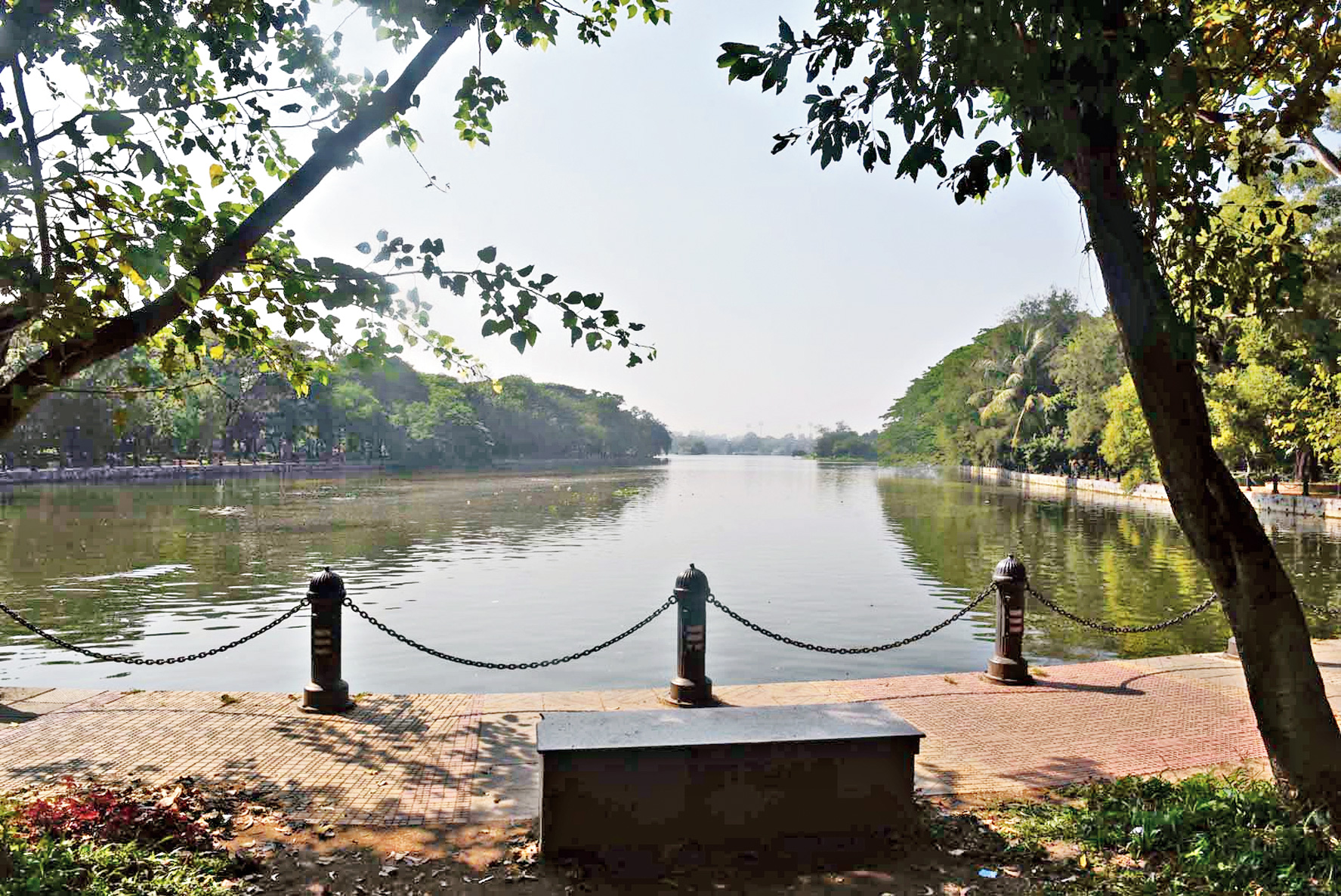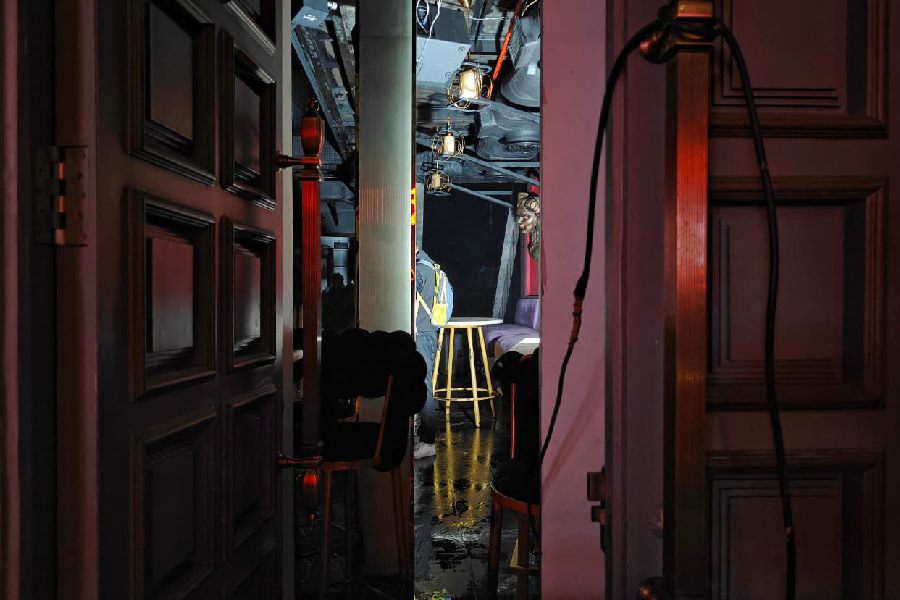Chhath Puja processions won’t be allowed to enter Rabindra Sarobar from this year in keeping with the National Green Tribunal’s 2017 notification prohibiting any activity that pollutes the sprawling artificial lake ringed by a park and gardens.
The Calcutta Metropolitan Development Authority (CMDA), which is the custodian of Rabindra Sarobar, has requested police to ensure that flowers and other waste are not dumped in the lake. Barricades are being put up to bar the entry of Chhath crowds.
Thousands of devotees are known to take a dip in the lake and perform rituals there on Chhath Puja. Removing the waste left behind by the crowds is a challenge that has got tougher each year, according to officials.
A net had been fixed about three feet away from the bank to demarcate an area where devotees could throw flowers, but that apparently didn’t help much.
“When an enormous quantity of flowers is dumped, it creates a layer on the surface of the water and prevents absorption of gaseous oxygen from the atmosphere,” said Arjan Basu Roy, founder of the NGO Nature Mates that is involved in conservation. “This can distort the ratio of dissolved oxygen and biological oxygen and cause the death of aquatic life.”
Dissolved oxygen is the amount of gaseous oxygen in water. Biological oxygen demand is the amount of dissolved oxygen needed by
organisms that live in the water body. Decomposition of dead organisms consume more dissolved oxygen and could lead to more deaths if not replenished, Basu Roy said.
The CMDA has written to the police asking for “arrangements” to enforce the National Green Tribunal’s restriction on any puja at Rabindra Sarobar that potentially poses a threat to the lake. A sign at the entrance to the lake cites the tribunal’s order.
The police have started putting up barricades around the no-go zone ahead of the festival on Tuesday.
“We have scheduled a meeting on Monday to flesh out the full security plan,” said an officer at Rabindra Sarobar police station.
Green activist Subhas Datta had petitioned the green tribunal in 2015 to spare Rabindra Sarobar the ravages of puja rituals that involve leaving flowers and food items floating in the lake. In 2016, it was decided that Chhath Puja rituals would be allowed there only if special arrangements were made to prevent pollution.
“An area was to be demarcated for the purpose. Whatever was dumped in the water had to be cleaned within a few hours,” Datta recalled.
In 2017, the green tribunal clamped a ban on any activity that pollutes Rabindra Sarobar. The Calcutta Municipal Corporation requested the
tribunal to allow Chhath Puja rituals at Rabindra Sarobar one last time, saying it was almost impossible to make arrangements “at the last moment”.
Rabindra Sarobar currently has a team of 20 guards to watch over its 192 acres, which includes a 73-acre span of water and a 119-acre park.
Communications professional and activist Mudar Patherya, who is a regular at Rabindra Sarobar, described the civic administration’s intent to enforce the green tribunal’s order as a test case for the survival of the lake. “If the administration is able to turn away the revellers and convince them not to dump waste in the water, it will be big step towards saving Rabindra Sarobar,” he said.
Rabindra Sarobar, previously known as Dhakuria Lake, is south Calcutta’s favourite destination for a stroll. Rowing is a popular activity there, as is the free Sunday salsa class by the lake.











